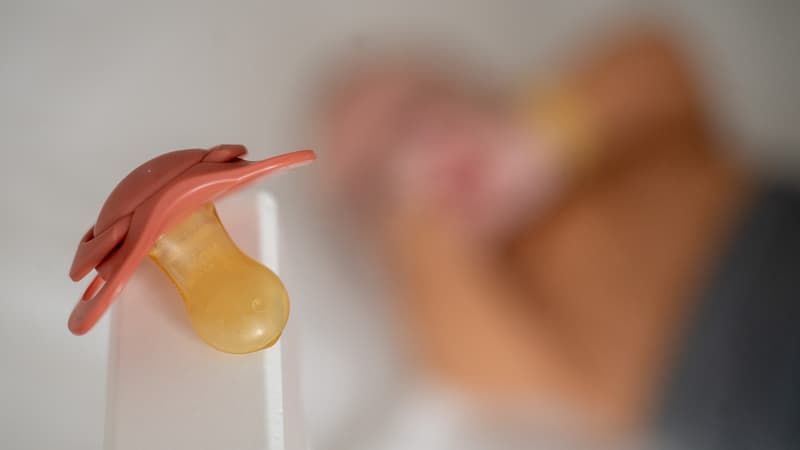Are pacifiers harmful to the health of newborns? Three major European brands: the Dutch multinational Philips, the Swiss oral health specialist Curaprox and the French toy maker Sophie la Girafe, have been selected by the Czech consumer association dTest.
The latter has carried out laboratory analysis and states that, contrary to what is written in their marketing, the pacifiers of these brands are contaminated with bisphenol A (or BPA), reports The Guardian.
It is a synthetic chemical substance used in the production of plastics and can harm the health of children.
“The effects of BPA are considerable,” Chloe Topping, an activist with the Chem Trust association, warns The Guardian. According to her, BPA can cause “breast cancer, prostate cancer, endometriosis, heart disease, obesity, diabetes, immune system disorders,” but also “effects on reproduction, brain development and behavior.”
Specifically, its structure is similar to that of estrogen, the female hormone. Therefore, exposure to bisphenol A from a very young age can lead to reduced sperm numbers in children and early puberty. Babies and children “are still developing and their organs are very sensitive to disturbances,” adds Chloe Topping, stressing that endocrine disruptors can act at “very low concentrations.”
A “negligible” dose?
“Pacifiers are often one of the first items that parents buy and they do not expect to expose their children to chemicals that disrupt the endocrine system from day one,” laments Hana Hoffmannová, editor-in-chief of dTest magazine, quoted by British media.
In total, the researchers obtained 19 pacifiers from the Czech Republic, Slovenia and Hungary, as well as two from the online platform Temu. They placed each pacifier in an artificial saliva solution for 30 minutes at 37°C to replicate conditions similar to a child’s chewing. The extract obtained was then analyzed to determine its BPA content.
Result? The chemical was detected in four pacifiers, including the Curaprox “Baby Grow with Love” pacifier, which had a BPA concentration of 19 micrograms per kilogram. Curaden, the manufacturer, found the same data after the fact and expressed “surprise.”
“As a precautionary measure and in line with our commitment to quality, Curaden has immediately decided to proactively recall the affected lollipops from the market and offer a refund to all affected customers,” the spokesperson said, quoted by The Guardian.
In Sophie la Girafe’s pacifier, although sold as “natural rubber”, 3 micrograms of BPA per kilo were found. Or something more than in the Philips Avent Ultra Air, also presented as “BPA free”, and in a Temu pacifier, with 2 micrograms per kilo each.
Philips claimed that it had carried out further analysis and had not detected any traces of BPA, while Sophie la Girafe defended itself by stating that the amount detected was “insignificant”.
Vague European regulations
“It has been a long time since we have had pacifiers in our catalogue. In any case, all our products are subject to exclusive tests before being put on the market, carried out by an accredited laboratory,” declared a spokesperson for Vulli, creator of the tricolor brand.
According to him, Sophie La Girafe, who no longer sells pacifiers on her site despite photographs of old products, is in no way violating any European regulations. The regulations are also very ambiguous regarding the concentration of BPA in pacifiers.
The EN1400 standard sets a limit for BPA migration from pacifiers at 10 micrograms per kilo (or liter), while the European Toy Safety Directive, which also covers pacifiers, sets a limit at 40 micrograms per kilo (or liter).
Vulli’s spokesperson also reminds The Guardian that “the detection limit in the laboratory is 0.01 mg/kg”, or 100 micrograms per kilo. That is, the 3 micrograms found during the analyzes are far from the limit values.
The truth is that European legislation, for example, has completely prohibited the use of BPA in baby bottles since 2011. Enough to push associations defending children’s rights to denounce an illogical double standard, knowing that babies generally use pacifiers with greater intensity and for longer periods of time.
Source: BFM TV


